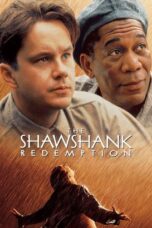Hacksaw Ridge – Born into a devout family, Desmond Doss grew up in the small Virginian town of Lynchburg. Desmond Doss, the disturbed son of World War I veteran Tom Doss, was influenced by violence and faith in his early life. One day, Desmond looks at a picture of the Ten Commandments and concentrates on the phrase, “Thou shalt not kill,” after almost killing his brother in a vicious playfight. His lifetime dedication to nonviolence is cemented at this very moment.
The world devolves into the turmoil of World War II as Desmond matures. Desmond enlists in the army with the intention of never carrying a weapon since he feels a strong sense of obligation to serve his nation. He enlists as a medic because he feels that his job is to save lives, not take them. But he finds himself at odds with his superiors in the military as well as his fellow soldiers as a result of this choice.
Because he won’t hold a gun, Desmond is constantly made fun of and mistreated at boot camp. His fellow troops consider him a coward since they see him as a liability in combat due to his lack of willingness to fight. His commanding officer, Captain Glover, and the drill instructor, Sergeant Howell, try to get him to leave the army by reprimanding him and then putting him through a court-martial for disobedience. On the other hand, even while his friends beat and taunt him, Desmond refuses to waver from his principles.
Desmond is offered the chance to leave the army with an honorable discharge during a dramatic court-martial scenario, but he declines. Tom, his father, steps in and presents a document from a senior military commander guaranteeing Desmond’s ability to continue serving in the army as a doctor without having to carry a weapon. Desmond is granted permission to carry out his duties when the court finds in his favor.
Desmond’s battalion is sent to Okinawa, where their mission is to capture the highly defended Japanese stronghold known as Hacksaw Ridge. Soldiers are being shot down by enemy fire as they try to mount the sheer cliffs of the crest in this vicious and gory conflict. Unarmed, Desmond follows the guys to the summit, where they are confronted by a deluge of gunshots and explosives right away.
Desmond works nonstop to heal the injured while the fight rages, frequently placing himself in danger to help soldiers return to safety. Desmond sticks behind after receiving orders for his unit to retreat because he wants to save as many soldiers as he can. While Japanese soldiers continue to explore the area under cover of darkness, Desmond crawls over the battlefield in search of survivors.
He carries injured guys to the ridge’s edge repeatedly, attaching them to ropes and lowers them to safety. After every successful rescue, a tired and bruised Desmond prays, “Lord, help me get one more.” Desmond had saved 75 soldiers by himself at the end of the night, lowering them all to safety from the hill.
Desmond’s extraordinary bravery earns him the respect of his fellow soldiers, many of whom had doubted him. Even Captain Glover, who had once tried to have him discharged, approaches Desmond and tells him, “You’re the bravest man I ever met.”
The next day, Desmond insists on joining the assault on Hacksaw Ridge, despite being injured. His comrades, now inspired by his courage, refuse to go into battle without him. With Desmond by their side, they take the ridge, successfully defeating the Japanese forces.
Desmond Doss would go on to become the first conscientious objector to receive the Medal of Honor, the United States’ highest military decoration. His story is one of immense courage, faith, and conviction, demonstrating the power of standing by one’s principles, even in the face of unimaginable danger.
Conclusion
“Hacksaw Ridge” is more than a war movie—it’s a testament to the strength of human spirit and belief. Desmond Doss’s story serves as a powerful reminder that heroism doesn’t always require violence. His bravery on the battlefield, armed only with his faith and determination, saved the lives of many men, and his legacy continues to inspire.






